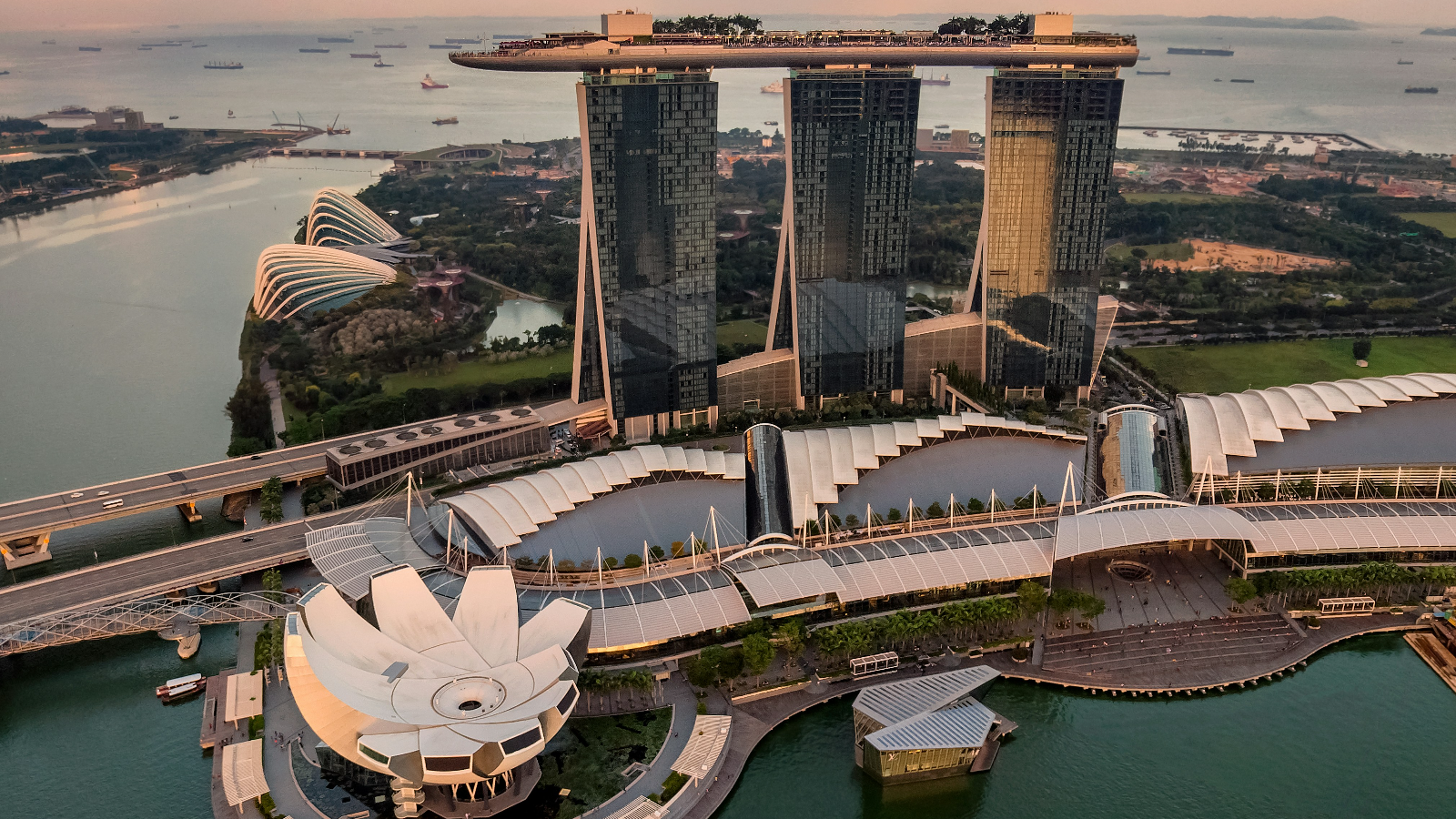In this Article
Introduction
Singapore’s transformation into a smart city is a holistic reimagining of urban living, blending cutting-edge technology with sustainability and community well-being. By pioneering vertical farming, digital twin technology, inclusive smart housing, and cultural heritage integration, Smart City Singapore sets a global standard for urban innovation.
This guide explores the unique initiatives that make Singapore a leader in smart city development and their profound impact on everyday life, showcasing how urban areas can become more sustainable, efficient, and inclusive.
Innovations Driving Smart City Singapore
Discover how Singapore is shaping the future of urban living. Explore these innovative initiatives and envision a smarter, more sustainable city today.
1. Vertical Farming and Urban Agriculture
One of Singapore’s most unique innovations is its approach to urban agriculture. With limited land, the city has turned to vertical farming to ensure food security and sustainability.
- Sky Greens: The world’s first low-carbon, hydraulic-driven vertical farm, Sky Greens, produces fresh vegetables using minimal land and energy. This innovation reduces Singapore’s reliance on imported produce and provides fresh, local food to residents.
- Urban Rooftop Farms: Buildings across the city feature rooftop farms that contribute to local food production. These farms utilize advanced hydroponic systems to grow a variety of crops, turning unused urban spaces into productive agricultural sites.
- Community Engagement: Urban farming initiatives often involve community members, fostering a sense of ownership and promoting sustainable living practices.
2. Digital Twin Technology
Singapore leverages digital twin technology to create virtual replicas of its urban environment. This innovative approach enhances urban planning and infrastructure management.
- Virtual Singapore: A dynamic 3D digital model of the city, Virtual Singapore, integrates data from various sources to simulate real-world conditions. This model aids in urban planning, disaster management, and environmental monitoring.
- Predictive Analytics: Digital twins use predictive analytics to foresee the impact of potential changes in the city, such as new constructions or policy shifts. This foresight enables better decision-making and efficient resource allocation.
- Public Participation: Residents can interact with digital twins through virtual platforms, contributing ideas and feedback on urban development projects.
3. Inclusive Smart Housing
Smart City Singapore prioritizes inclusivity by integrating smart technology into public housing, ensuring that technological advancements benefit all residents, regardless of socio-economic status.
- Smart Estates: Singapore’s smart estates feature intelligent home systems that enhance energy efficiency, security, and convenience. These systems include smart locks, energy-efficient appliances, and automated waste collection.
- Elderly-Friendly Features: Public housing is equipped with sensors and monitoring systems to assist elderly residents. These features include fall detection, remote health monitoring, and emergency alert systems, enabling seniors to live independently and safely.
- Affordable Access: By incorporating smart technology into public housing, Singapore ensures that all residents, not just those in high-income areas, can enjoy the benefits of a smart city.
4. Cultural Heritage and Technology Integration
Singapore uniquely blends its rich cultural heritage with modern technology, preserving its history while embracing the future.
- Smart Heritage Trails: The city offers interactive heritage trails equipped with augmented reality (AR) and QR codes, providing immersive experiences that bring historical sites to life. Visitors can learn about Singapore’s past through engaging, tech-enhanced tours.
- Digitized Archives: Singapore has digitized its vast cultural archives, making historical documents, photographs, and artifacts accessible to the public through online platforms. This initiative preserves the city’s heritage and promotes educational opportunities.
- Cultural Festivals: Traditional festivals are enhanced with digital elements, such as live-streamed performances and virtual reality (VR) experiences, allowing a global audience to participate and appreciate Singapore’s cultural diversity.
Conclusion
By focusing on these key areas, Smart City Singapore exemplifies how urban environments can be transformed to meet the demands of the future. Through innovation and strategic planning, cities can become more sustainable, efficient, and livable for all residents. By integrating cutting-edge technologies with a strong emphasis on community engagement and environmental stewardship, Singapore not only addresses current urban challenges but also prepares for future needs.
This proactive approach ensures that the city remains resilient in the face of global trends such as urbanization and climate change, setting a benchmark for smart city development worldwide. As cities continue to evolve, they can look to Singapore’s model as a blueprint for creating thriving, inclusive, and sustainable urban environments that enhance the quality of life for generations to come. Embrace the future of urban living with Smart City Singapore as your inspiration.
How Can We Help?
The AlphaX ecosystem is dedicated to providing comprehensive solutions that address the unique challenges faced by smart cities like Singapore. Our platform supports innovative urban agriculture, advanced digital twin technology, and inclusive smart housing solutions. We also help integrate cultural heritage with modern technology to enrich community engagement. To learn more about how we can assist in your smart city initiatives, visit us today and discover how our tailored solutions can empower your city’s journey toward sustainability and resilience.
References
Related Blog Posts
How Smart Cities Connect: Getting Started with Edge AI and IoT Technology
How to Get Started with Edge AI and IoT Technologies in Smart Cities: Overcoming Integration Challenges In recent years, the concept of smart cities has evolved from a futuristic Read More
5 Step Strategy: Ensuring Security and Privacy in 15-Minute Smart Cities
Introduction Ensuring security and privacy in 15-minute smart cities is a critical challenge as urban areas become increasingly connected through IoT and edge AI technologies. These cities aim to Read More
What is a smart city and the challenge of legacy systems
How to Get Started with Integrating Legacy Systems in Smart Cities Smart cities are transforming urban landscapes by leveraging technology to improve the quality of life for residents. However, Read More




